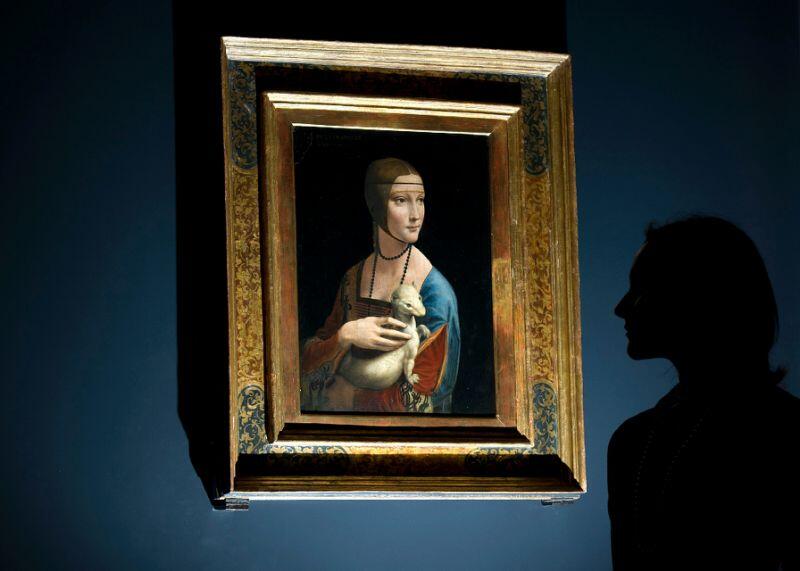Poland’s culture ministry on Thursday bought a private art collection worth an estimated two billion euros that includes Leonardo da Vinci’s “Lady with an Ermine”.
The 15th-century portrait of a young woman holding a white ermine, a kind of short-tailed weasel, is one of just four known paintings of women by the Renaissance master. Another is the Mona Lisa.
“Ladies and gentlemen, as Polish citizens, we are now all owners of the Czartoryski collection,” Culture Minister Piotr Glinski said to applause at the signing ceremony at the Royal Castle in Warsaw.
Sitting alongside him among marble columns and chandeliers and under a fresco was Prince Adam Karol Czartoryski, president of the foundation that sold the collection.
“I am basically just following my ancestors who always worked for the Polish nation,” the 76-year-old prince, who lives abroad, told the audience.
Glinski said the country paid 100 million euros (dollars) plus tax for the tens of thousands of items, “a small fraction of the market price”.
In addition to the Da Vinci, which is insured for about 350 million euros ($365 million), the collection’s other big names include a Rembrandt, drawings by Renoir and Chopin’s letters.
When asked by reporters why he was willing to accept such a low sum, Czartoryski said: “Listen, in life you do the things the way you feel like it. I felt like making a donation and that’s my choice.”
His ancestor Princess Izabela Czartoryska founded the collection in 1801 to preserve Polish and European works while her country was partitioned by neighbours Austria, Prussia and Russia.
The culture ministry in turn has said it wants to ensure the collection never leaves the country, which was a possibility as long as it was owned by the Princes Czartoryski Foundation.
The transaction was not without controversy, as the foundation’s Polish board of directors quit last week in protest, saying the negotiations were conducted without their knowledge.
‘First modern portrait’
“Lady with an Ermine” is among only 15 Da Vinci paintings in the world, according to art expert Janusz Walek.
“If we compare that to other painters, like Titian or Rembrandt, then that really isn’t a lot,” said Walek, author of a book on Da Vinci’s portraits of women.
The Italian master painted the revolutionary portrait, measuring 54 by 39 centimetres (21 by 15 inches), between 1488 and 1490.
The small oil painting on wood depicts Cecilia Gallerani, the multilingual teenage mistress of Ludovico Sforza, the Duke of Milan and one of Da Vinci’s patrons.
The Italian nobleman, who commissioned the portrait, makes his own cameo in the painting, as art historians believe the ferret-like animal in Gallerani’s arms is an allusion to him.
“The ermine, a symbol of purity, was in the duke’s emblem,” said Grazyna Bastek, curator of Italian painting at the National Museum in Warsaw.
Gallerani is believed to have held onto the painting till her death in 1536 but what happened to it over the next 300 years remains a mystery.
The Czartoryski family bought it in Italy around 1800 and took it to Poland, where the invading Germans looted it in 1939. But it was restituted after the war.
“For many, many years the painting was not very well-known. It was only when it began to tour the world in the 1990s that its value rose,” Walek said, citing exhibitions in places like Italy, Sweden and the United States.
“This is really the first modern portrait in European painting,” he added, explaining that it is not a mock-up but an incredibly lifelike representation that even manages to convey Gallerani’s inner thoughts.
Glinski said the state treasury will transfer the Da Vinci painting and the rest of the collection to the National Museum in Krakow for all the world to see.











